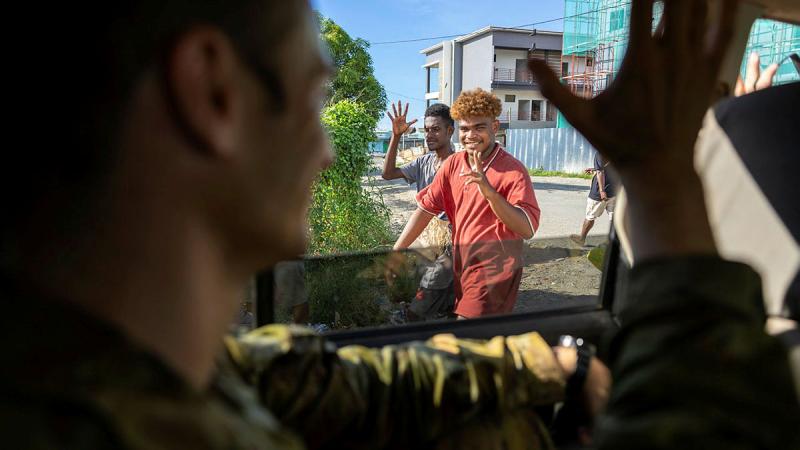More than 600 firefighters and first responders today climbed 28 floors wearing 25kg of full structural fire fighting gear and breathing apparatus for the annual Melbourne Firefighter Stair Climb (MFSC).

Now in its sixth year, the Stair Climb has raised more than $2 million for charities including the Alfred Hospital Burns Unit, the Peter MacCallum Cancer Centre, The Murdoch Children’s Research Institute, Lifeline and the Black Dog Institute.
This year, the focus is again on mental health with participants “stepping up” to fight depression, Post Traumatic Stress Injuries and suicide. Funds raised will support vital services and research and raise awareness of mental health issues with the money being donated to Lifeline, the Black Dog Institute and the Emergency Services Foundation.
The event saw career and volunteer firefighters from across the globe converge on the Crown Metropol Hotel in a gruelling display of fitness and determination.
Participants this year included representatives from the Metropolitan Fire Brigade, Country Fire Authority, Airservices Australia, Forest Fire Management Victoria, the Victoria State Emergency Service, Victoria Police, Ambulance Victoria and firefighters from New Zealand and the United States.
MFB Acting Chief Executive Officer / Chief Officer Greg Leach said mental health was an important issue for emergency services.
“As firefighters, we are regularly exposed to traumatic events and witness first hand their devastating effect on people’s lives,” he said.
“Events like these are a way for our firefighters and emergency service colleagues to raise awareness of these vital issues and help reduce the stigma of mental health.”
CFA Chief Officer and CEO Steve Warrington congratulated all participants on their hard work and dedication.
“The climb is a huge physical challenge for everyone who takes part, but it’s nothing compared with the battle that our friends, family and emergency service colleagues can face when it comes to mental health,” Mr Warrington said.
Black Dog Institute Chief Psychiatrist and Head of Workplace Mental Health Research Program Acting Proessor Samuel Harvey stressed that one in five Australians will experience a mental illness in their lifetime.
“We know that emergency service staff are at particular risk of post-traumatic stress injury, depression and suicide,” said A/Prof Harvey.
“We are honoured to be considered a charity of choice for this amazing event, and the generous Stair Climb donation will help our researchers continue their vital work in developing new and targeted treatments for better mental health amongst emergency service workers.”
Meredith Dalton, Manager of Lifeline Melbourne, said Lifeline answers a call every 32 seconds.
“The funds raised by the Melbourne Firefighter Stair Climb will provide a much-needed boost to our capacity to answer calls received after hours,” she said.
“It will be used to fund additional paid team workers who respond to calls at times of the day difficult to fill by volunteers.”
Emergency Services Foundation Siusan McKenzie said Victoria’s first responders respond to around 7000 calls every day.
“Money raised through the stair climb will enable ESF to improve understanding and reduce the stigma of mental health, so that personnel in the emergency services recognise the signs and act early to seek help and therefore have the best chance of recovery,” she said.















